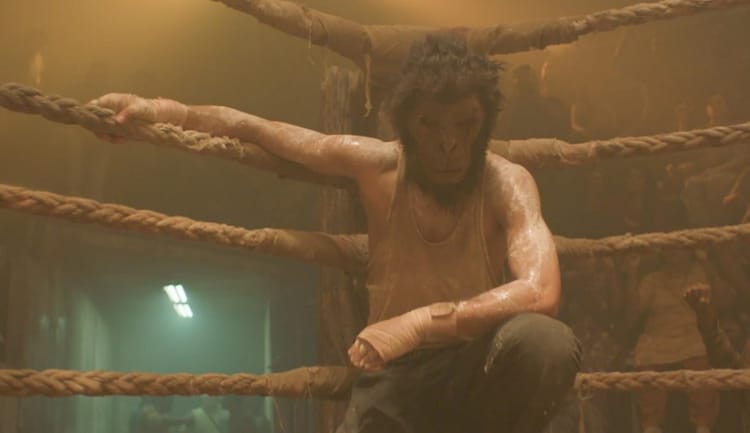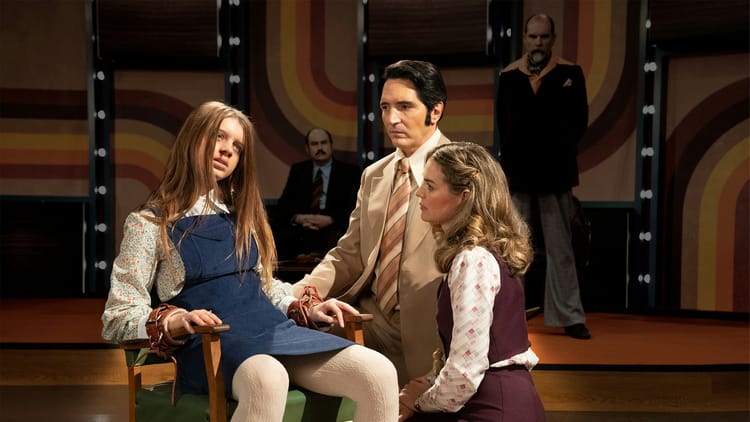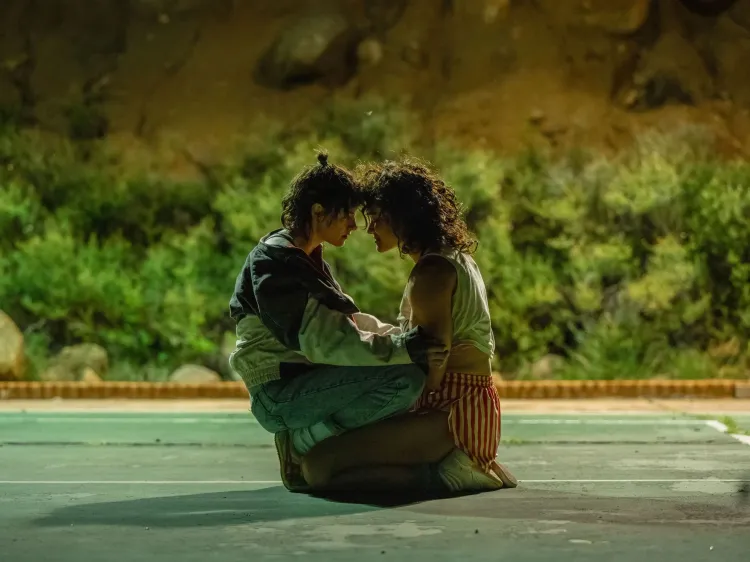Rebel Moon – Part One: A Child of Fire

You can often detect a Zack Snyder film without knowing anything about it. Heavily saturated colors, a generous amount of slow motion, melodramatic dialogue, and heavy-handed moralism are all tenets of his work, whether he's depicting a superhero, a Spartan, or an owl warrior. They're all a part of Snyder's style, a style that defined a certain era of action filmmaking. And though his films aren't critically well-received, over the years, he's secured the support of a diehard fan-base, a base that was loyal (or fanatic) enough to lobby for the Snyder Cut, a four-hour version of his Justice League. The central claim was that Snyder's version of the film was meddled with by the studio, corrupting Snyder's singular vision.
It's for that same reason many of his fans said Snyder would never make a Star Wars movie, as the franchise is infamous for executive interference, antithetical to Snyder's creative spirit. Then Netflix announced they'd be producing Snyder's own version of Star Wars, his own mega-galactic space opera, his own sandbox to do whatever he likes in, under the banner, "Rebel Moon." They put down 166 million dollars for the first two installments of this franchise, years before the first was even available to the public. Last month, they finally released "Rebel Moon – Part One: A Child of Fire," a work so derivative, it's as if someone fed Snyder's other films into an AI and waited to see what it would produce.
Though I don't enjoy Snyder's work to begin with, it is usually at least visually stimulating with its hyper-stylized combat and explosive heroic moments. "A Child of Fire" has both those things, but somehow, they're never interesting to watch. These sections are often forced, with bizarre scenarios that force a character to leap off a cliff, ledge, or platform simply to do the "cool" thing without it having any bearing on the story or characters. It doesn't matter if a man is diving onto a flying beast if I don't know who the man is or why he's doing it. In short, the audience's eye is never engaged, and their spirit is even further disconnected from the action.
At its core, it's about a former soldier assembling a ragtag group of revolutionaries to fight off an impending fascist threat. It's definitely pulling from Akira Kurosawa's "Seven Samurai," which was also an influence for George Lucas' original "Star Wars." But unlike George Lucas, Snyder does not seem to care a single lick about any of the characters in this motley crew. We are given empty lip service as to why some of these characters would risk their lives for this foolhardy cause, and if we're lucky, we get two over-written sentences on why we should care. By the film's ending, the most background information we get about any of the heroes comes from a villain's monologue at the film's very ending. It's hardly menacing, nor is it a potent reveal. It's more like Snyder is covering up loose ends, realizing that he's gone two hours and forgotten to tell us some of the characters' names. Their lives and deaths are completely inconsequential to us as an audience because we do not have any understanding of their motivations, their backgrounds, that personalities. All we are given is the faintest outline of a character who, perhaps in a sketchbook, or in a video game character creation cutscene, would seem cool. But when they're put in motion, when we're meant to see them as full beings, they are a tiresome collection of tropes and accents that aren't even worth their paltry screen time.
I have to admit: The Snyder Cut of "Justice League" is a far superior movie to its cinematic release. It had a sense of stakes and drama and it cared about its central characters more than the butchered studio version. After having seen it, I had hope that "Rebel Moon" would be the playpen where Snyder could finally let loose, unshackled by IP and unencumbered by executives. And surprising no one, he's doing it again. At an undisclosed date, an R-rated version of "A Child of Fire" will be released on Netflix, a true representation of Snyder's vision, despite this apparently watered-down version being the film's official release. I will not be watching Snyder's preferred version of "Rebel Moon." I've wasted enough time on his hollow planets already.




